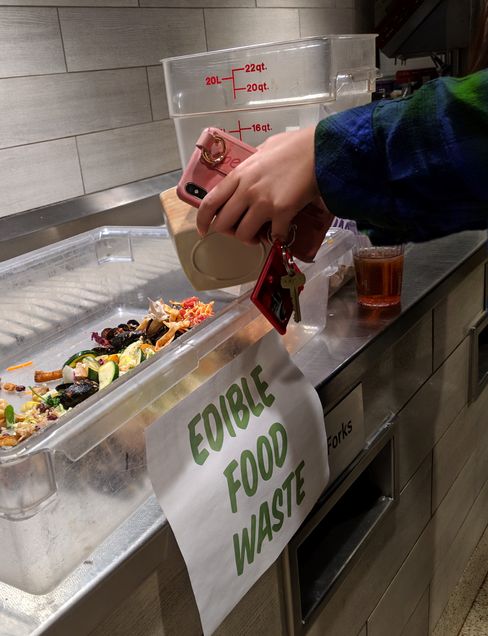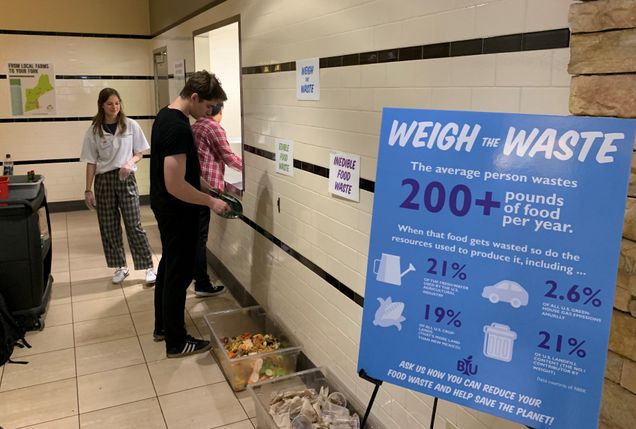Weigh the Waste

Boston University Dining Services recently partnered with the Boston University FEAST (Food Equality Accountability and Safety for Transparency) Senate Committee and BU Sustainability for a series of Weigh the Waste events during dinner at Marciano Commons, Warren Towers, and West Campus. The goals of these events were to raise awareness about post-consumer food waste and to identify strategies to minimize waste. While individual-level plate waste may seem inconsequential, on a university-wide level plate waste adds up; if students generated the same amount of food waste at each meal eaten in the dining halls, more than 652,000 pounds of food would be wasted in a single year! (This calculation is based on the average amount of food waste generated per student during the 2019 Weigh the Waste events and the number of meals served in Fiscal Year 2018.)
During the three-night event, students eating in the dining halls scraped and sorted their plate waste into separate food waste and non-food waste bins in front of the dish belts. Throughout the hour-long events the volume of waste grew, serving as a visual means of education about the scale of post-consumer waste generated at each meal every day. In addition to encouraging students to look at how much food waste they generate individually, the events allowed Dining Services to identify instances where portion sizes or menu items could be modified or improved.
Over the course of three hours 1,300 students across campus generated 303 pounds of food waste and 29 pounds of non-food waste – mostly napkins – with an average of 0.23 pounds of food waste generated per person. The carbon emissions associated with 303 pounds of food waste are equivalent to a car driving 698 miles – the distance between Boston University and Eastern Michigan!
There are economic, environmental, and social costs to food waste. A study by the National Resources Defense Council says annual food waste in the United States is equivalent to 1.3 percent of the country’s GDP, accounts for 21 percent of all of the agricultural water usage in the country, and produces 2.6 percent of the nation’s greenhouse gas emissions. This, while nearly one in eight households in the U.S. are food insecure.
BU Dining Services wants to maximize the positive impacts in consumer behavior and awareness that come from reducing the amount of pre-consumer and post-consumer waste generated on campus, and will continue to hold Weigh the Waste events each semester.
